Soil Biogeochemistry
Welcome to Soil Biogeochemistry
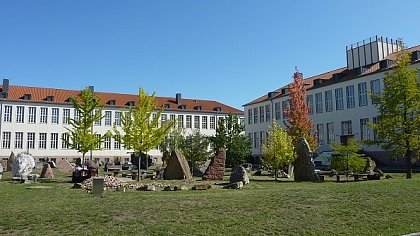
Soil biogeochemistry, Institute of agricultural and nutritional sciences (Photo: Bruno Glaser)
Soil biogeochemistry, Institute of agricultural and nutritional sciences (Photo: Bruno Glaser)
Department of Soil Biogeochemistry
Professor Dr. Bruno Glaser
The major focus of our research is Biochar and its Environmental aspects. Furthermore we focus on the sustainable management of natural resources, the identification and quantification of soil processes, the method development, stable isotopes, non-destructive and non-invasive methods, the settlement history (Terra Preta, Raised Fields) and Palaeoecology.
[ more ... ]
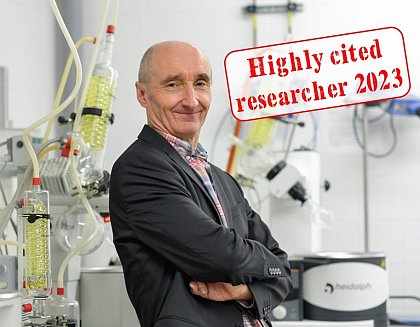
highly cited researcher Prof. Bruno Glaser, Foto: Uni Halle / Markus Scholz
highly cited researcher Prof. Bruno Glaser, Foto: Uni Halle / Markus Scholz
Contact
Sekretariat
room 3.3.31
Von-Seckendorff-Platz 3
06120 Halle (Saale)
How to reach us
phone: +49-(0)345-5522531
fax: +49-(0)345-5527116
postal address:
Martin-Luther-Universität Halle-Wittenberg
Naturwissenschaftliche Fakultät III
Institut für Agrar- und Ernährungswissenschaften
Professur für Bodenbiogeochemie
06120 Halle (Saale)


Energy efficiency in community-supported agriculture (SoLaWi) compared to conventional vegetable production
Community-supported agriculture (SoLaWi) promotes food security and sustainability. A study has shown that community-supported farms are more efficient in their use of energy, e.g. by using less fossil fuels and more of their own photovoltaics. Despite lower yields, they offer advantages such as more biodiversity, fewer food losses and secure markets. SoLaWi is therefore a promising approach to sustainable nutrition.
[ more ... ]
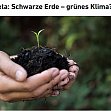
Terra Preta: Black earth - green climate?
It is a thousand-year-old product of chance: Terra Preta. The black, nutrient-rich soil was created in the Amazon region when indigenous peoples began to bury their rubbish in the ground. The secret of terra preta is the biochar it contains - which is taking on a new significance in the fight against the climate crisis.
[ more ... ]
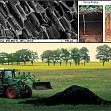
Die Wirtschaftsreportage
"Terra Preta": really a miracle cure for climate change?
[ more ... ]
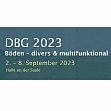
Healthy soils are essential for survival
Multi-day conference in Halle “Soils - diverse & multifunctional” shows the broad spectrum of soil research.
[ more ... ]
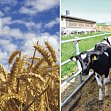
Reduced carbon footprint of milk during the conversion from conventional to organic milk production
If a dairy farm converts its production from conventional to organic, this can reduce its climate footprint by up to nine percent. This was demonstrated in a new study led by the Soil Biogeochemistry Group (MLU) and the Leibniz Institute of Agricultural Development in Transition Economies (IAMO), for which a dairy farm was accompanied in this process over two years.
[ more ... ]
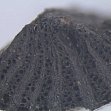
Aktiver Klimaschutz durch Einsatz von Pflanzenkohle
The use of biochar for active climate protection is increasingly becoming the focus of public attention. But in addition to its ability to store CO2 and other greenhouse gases in the long term, biochar has many other advantages for arable farming and animal nutrition. For NDR, Prof. Bruno Glaser talks about the use of biochar for climate protection and its many agronomic benefits.
[ more ... ]

Biochar: save CO2 and improve the soil
Coal from forest and harvest waste has many advantages. The raw material is produced anyway, the coal stores CO2, improves arable soils and has advantages for animal husbandry. No wonder that agricultural research is focusing intensively on biochar. Prof. Bruno Glaser talks to SWR2 about the agronomic benefits, its role in climate protection and possible applications in a sustainable circular economy.
[ more ... ]
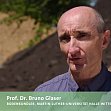
Terra preta: Schwarze Wunder-Erde aus Franken
Many gardening enthusiasts swear by “terra preta”, black soil, which is particularly fertile. It was discovered in the Amazon at the end of the 19th century. It was created there 2000 years ago from human waste. Aaron Saßmannshausen from Upper Franconia produces “terra preta” himself - on a large scale. The basis: horse manure, plant waste and - most importantly - charcoal.
[ more ... ]

Making of TerraX
the history of Terra Preta (TerraX
05.03.2020)
[ more ... ]
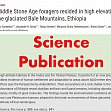
Science Publication: Middle Stone Age
foragers resided in high elevations of
the glaciated Bale Mountains, Ethiopia
Studies of early human settlement in alpine environments provide insights into human physiological, genetic, and cultural adaptation potentials. Although Late and even Middle Pleistocene human presence has been recently documented on the Tibetan Plateau, little is known regarding the nature and context of early persistent human settlement in high elevations. Here, we report the earliest evidence of a prehistoric high-altitude residential site.
[ more ... ]
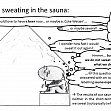
Sauna, sweat and science II – do we sweat what we drink?
Inspired by a previous ‘Sauna, sweat and science’ study [Zech et al. Isot Environ Health Stud. 2015;51(3):439–447] and out of curiosity and enthusiasm for stable isotope and sauna research we aimed at answering the question ‘do we sweat (isotopically) what we drink’?
[ more ... ]
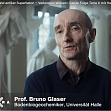
Lost knowledge (1/2) - with Harald Lesch
Prof. Harald Lesch goes in search of knowledge that has been forgotten. He comes across knowledge that could solve today`s problems.
The search for an 8000-year-old super fertilizer takes the “Terra X” team to the Amazon region. The indigenous people seem to have had a recipe for making the infertile soil in the Amazon fertile. Even today, Terra Preta acts as a long-term super fertilizer. Fertile soil from recycled waste - this could be a solution to the many problems of modern agriculture
Translated with DeepL.com (free version)
[ more ... ]
Up



















